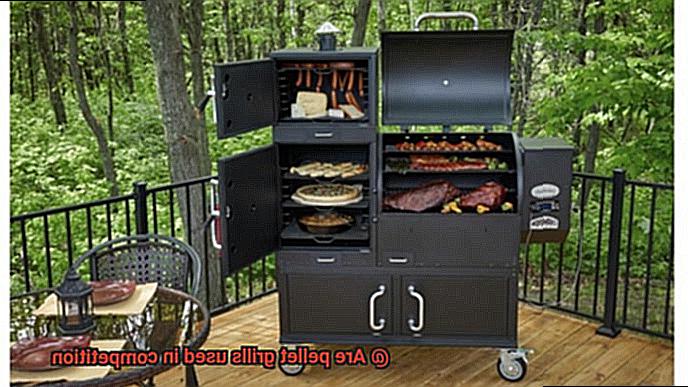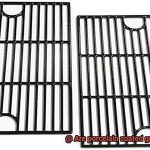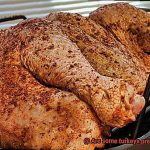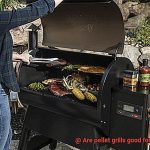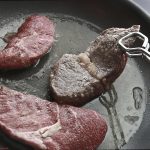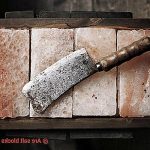When it comes to barbecue competitions, the stakes are high and the competition is fierce. Pitmasters from all over the world gather to showcase their skills and compete for the coveted title of best BBQ team. And while each pitmaster has their own secret recipe, cooking technique, and equipment, there’s one question that seems to be on everyone’s mind: are pellet grills used in these competitions?
Pellet grills have become increasingly popular in recent years. They’re a modern type of smoker that uses wood pellets as fuel, making them perfect for anyone who wants to experience authentic barbecue without all the hassle of traditional wood or charcoal smokers. However, some skeptics argue that pellet grills aren’t suitable for professional BBQ competitions.
But here’s the thing: pellet grills have come a long way since they were first introduced in the market. Pitmasters have realized their potential and have started using them in competitions. This has raised some concerns about whether they give a fair chance to all competitors, as some pitmasters might argue that traditional wood and charcoal smokers give a more authentic flavor to the meat.
In this blog post, we’ll explore everything you need to know about using pellet grills in BBQ competitions. We’ll discuss the pros and cons of using pellet grills versus traditional smokers, how they compare in terms of flavor and performance, and whether or not they give an unfair advantage to those who use them.
So whether you’re a seasoned pitmaster looking for new ways to up your game or a backyard BBQ enthusiast curious about what goes on behind the scenes at these competitions, keep reading to find out if pellet grills are suitable for professional barbecue competitions.
Contents
What are Pellet Grills?
It’s time to discover the versatile world of pellet grills. Also known as pellet smokers or wood pellet grills, these outdoor cooking devices operate by using compressed wood pellets as their fuel source. But what sets them apart from other grills?
The answer lies in their precision control system, which regulates the flow of pellets into the firebox. This allows for consistent temperature control over long periods of time, making them a favorite among both professional chefs and amateur grillers. And with a digital thermostat or other control system, adjusting the temperature is a breeze.
But temperature control is just the beginning. Pellet grills offer a wide range of cooking options, including smoking, roasting, baking, and grilling. With additional features such as searing grates or rotisserie attachments, there’s no limit to what you can cook on a pellet grill.
And let’s not forget about the unique flavor profile that comes with using wood pellets as a fuel source. Whether you prefer hickory, mesquite, apple, cherry, or another wood type, you can add an extra layer of flavor to your dishes that you just can’t get with gas or charcoal grills.
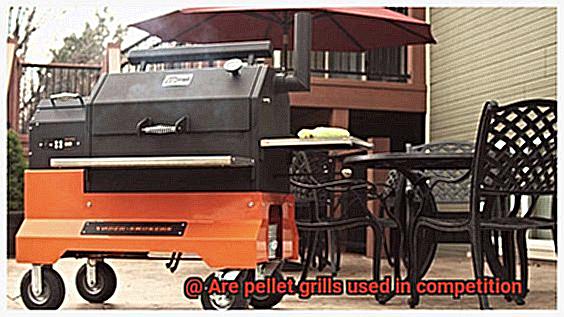
Despite their many advantages, some people may wonder if pellet grills are suitable for BBQ competitions. The answer is a resounding yes. Pellet grills have been gaining popularity in recent years due to their consistent results and ease of use.
Advantages of Using Pellet Grills for Competition
As an expert on the advantages of using pellet grills for competition, I’m here to tell you that these innovative outdoor cooking devices are a game-changer.
One of the most crucial aspects of competition grilling is consistency, and pellet grills deliver precisely that. With a simple temperature setting, you can trust that your grill will maintain a consistent temperature throughout the entire cooking process. This is especially important when cooking large cuts of meat that require hours of cooking time. With pellet grills, you can set it and forget it, allowing you to focus on other aspects of your cook.
But that’s not all – pellet grills are also incredibly versatile and allow for smoking, grilling, roasting, and even baking. This means you can use a single grill to cook a wide variety of dishes, giving you a huge advantage in competition settings where space and equipment can be limited. Pellet grills also offer great flexibility in terms of cooking temperature, allowing you to cook slow and low or hot and fast.
Pellet grills are easy to use even for novice grillers thanks to their digital controls and features like meat probes that allow you to monitor the internal temperature of your meat as it cooks. You don’t have to be an experienced pitmaster to produce restaurant-quality results with a pellet grill.
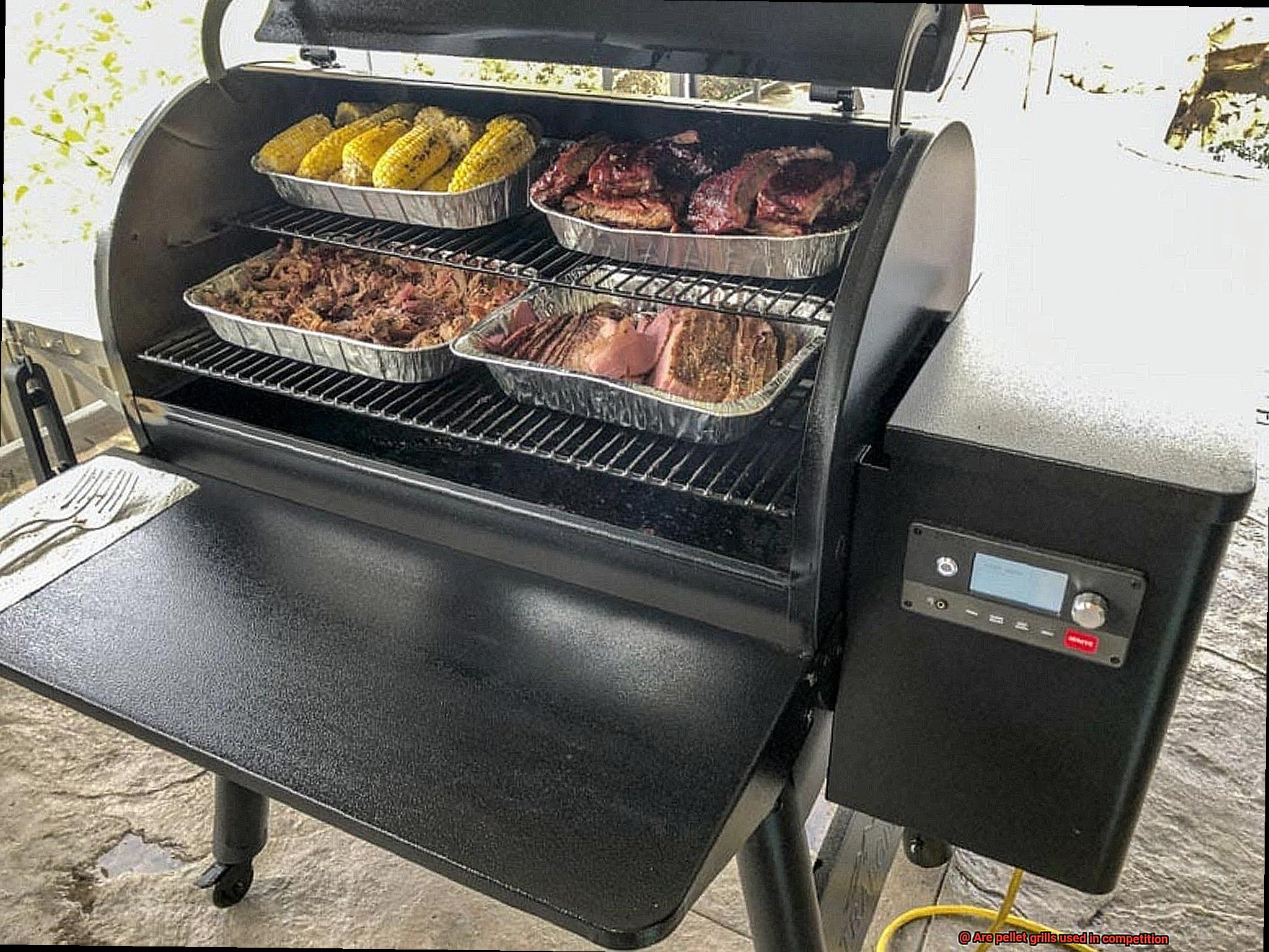
One of the most significant advantages of using a pellet grill in competition is their ability to impart delicious smoky flavor to your food. Pellet grills use wood pellets as fuel, which infuse your food with natural smoke flavor. Many pellet grills also allow you to choose from a variety of wood flavors, such as hickory or mesquite, so you can customize the flavor profile of your food to your liking.
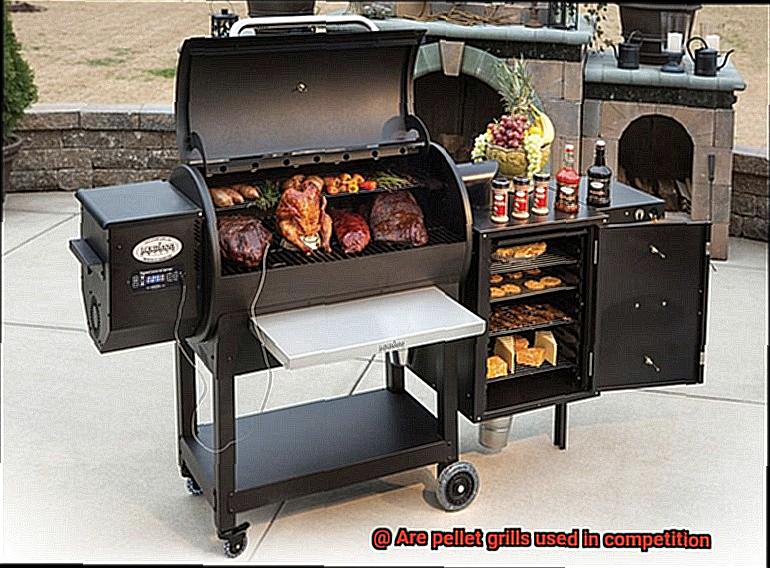
Lastly, cleaning up after a cook is quick and painless with pellet grills. Many models come equipped with removable grease trays and ash pans that make cleaning up a breeze, which is essential in competition settings where time is of the essence.
Different Types of Pellets and Their Flavors
Pellet grilling has taken the world of barbecue by storm, and one of the things that sets it apart from traditional grilling is the use of wood pellets. These compressed sawdust pellets come in a variety of flavors, each with its own unique taste that can elevate your BBQ game to the next level. Let’s explore the different types of pellets and their flavors in more detail.
Hickory Pellets
If you love a bold and robust flavor, then hickory pellets are for you. They produce a strong and smoky taste that pairs perfectly with beef, pork, and game meats. Hickory pellets are a popular choice for those who want a richer flavor in their meat.
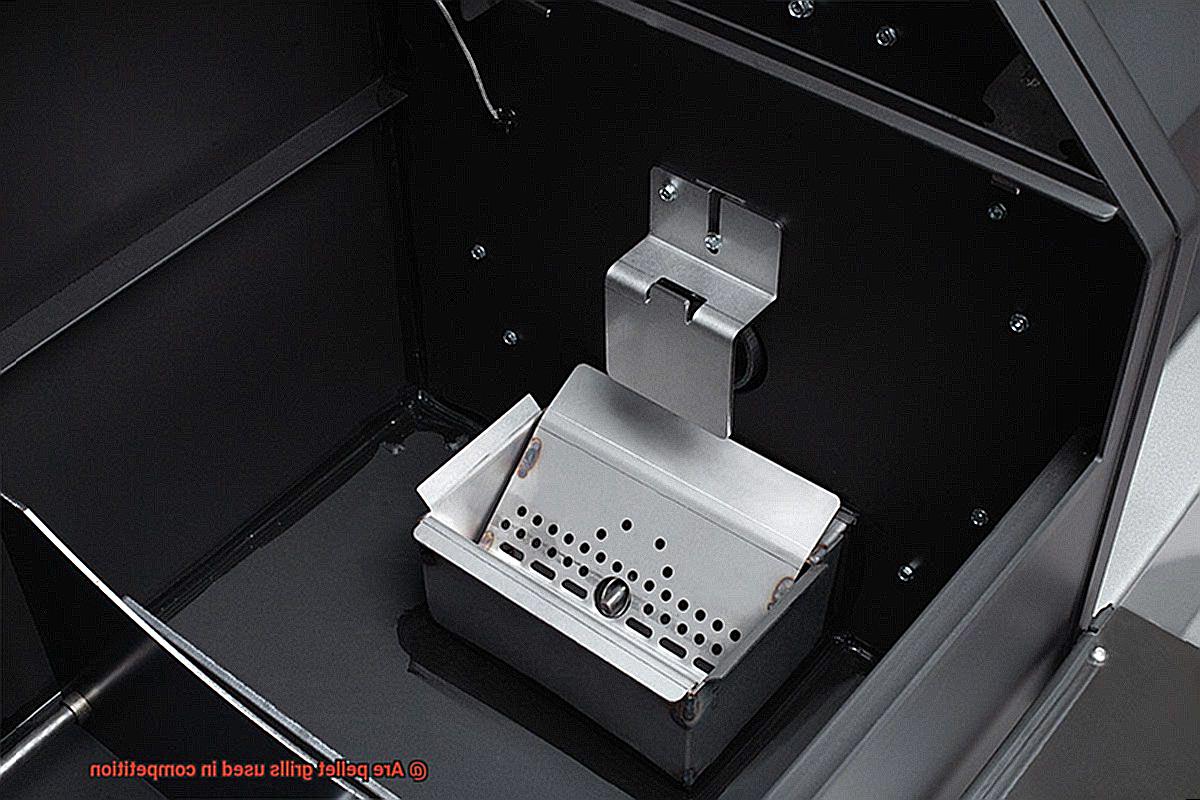
Mesquite Pellets
For those who prefer a more intense flavor, mesquite pellets are perfect. They have a stronger and spicier flavor that goes well with beef and poultry dishes. Mesquite pellets are ideal for those who want to add a bit of heat to their BBQ.
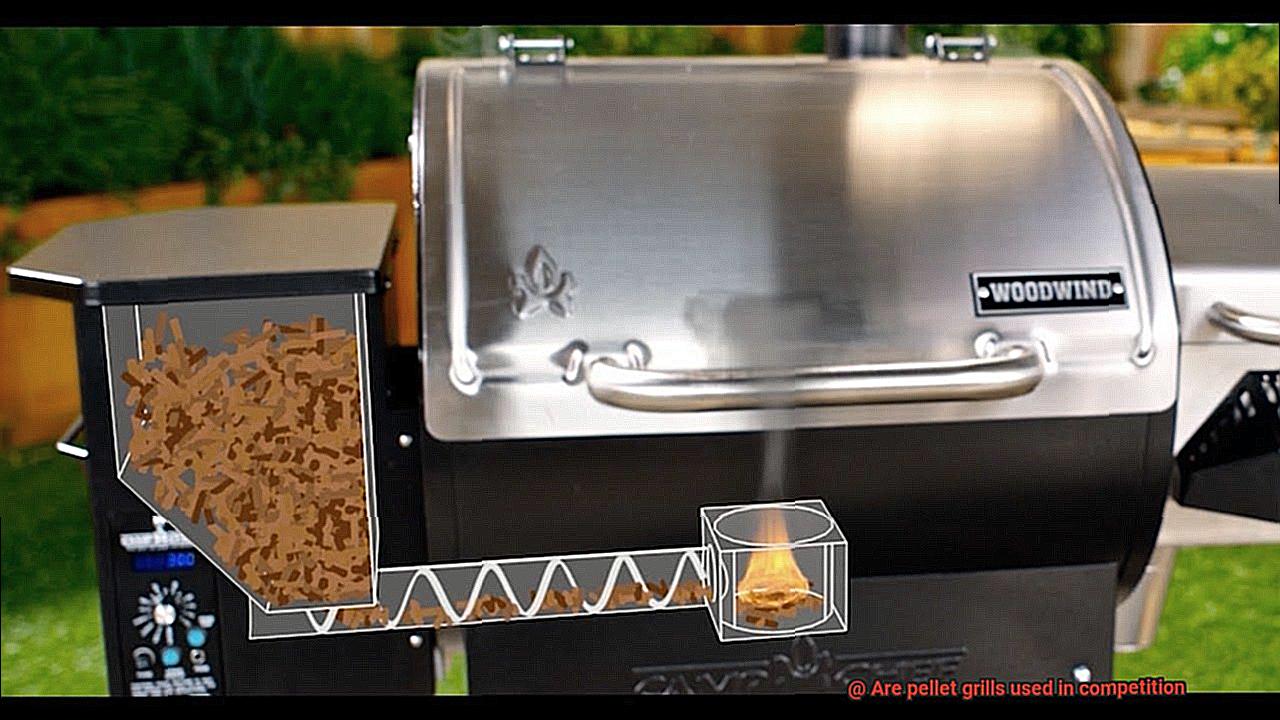
Fruitwood Pellets
For a milder flavor, fruitwood pellets like apple or cherry can be used. Applewood pellets are perfect for poultry and pork dishes, while cherry wood pellets work well with beef and poultry. Fruitwood pellets offer a sweeter and fruitier taste to your meats.
Alderwood Pellets
If you’re looking for a subtle flavor that doesn’t overpower the delicate taste of fish or seafood, then alderwood pellets are an excellent choice. They produce a light and slightly sweet flavor that complements the taste of fish without overwhelming it.
Blends of Different Wood Pellets
For those who want to get creative with their BBQ flavors, mixing different types of pellets can create unique blends that suit specific tastes. For example, blending hickory and applewood can result in a sweet and smoky flavor that works well with pork dishes.
Quality Matters
It’s important to note that not all pellets are created equal. Cheaper pellets may contain fillers or additives that can affect the flavor of your food. Investing in high-quality pellets will give you the best results for your BBQ.
In competition BBQ, the type and quality of pellets used can make a significant difference in the final product. Many competitive barbecue teams will use a blend of different pellets to achieve a specific flavor profile for their meats.
Cooking Techniques Used with Pellet Grills
Pellet grills have become a popular choice in competition barbecue for their consistent temperature control and clean smoke production. But what makes them stand out in terms of cooking techniques?
First and foremost, pellet grills excel at low-and-slow smoking. Thanks to their electronic controllers, pitmasters can set the temperature and forget about it for hours on end, allowing them to focus on other aspects of the cooking process without worrying about temperature fluctuations. And with a variety of wood pellets available, from hickory to mesquite to applewood, the options for flavor profiles are endless.
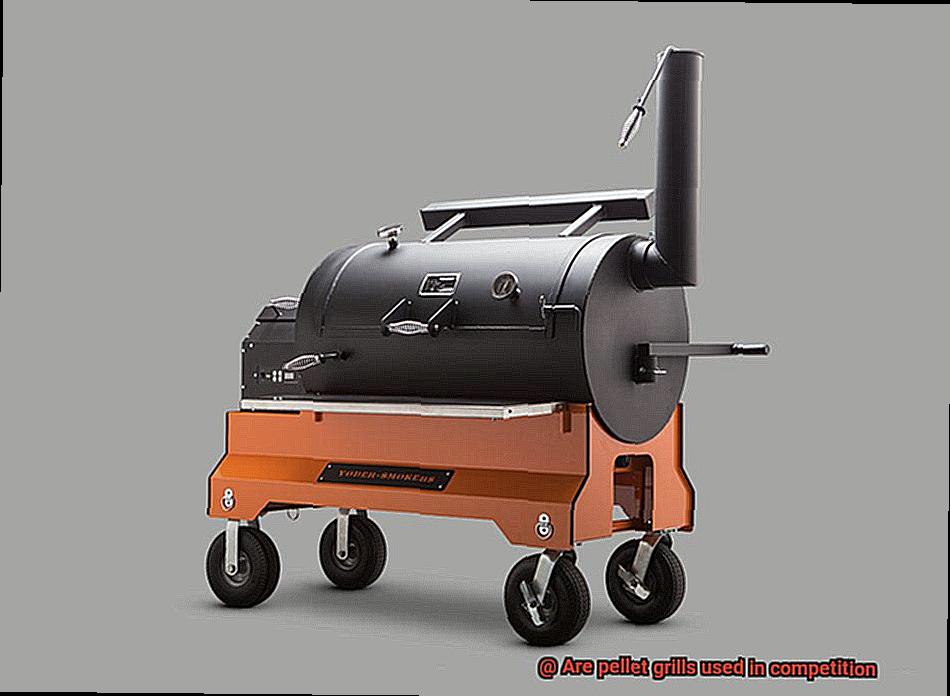
But pellet grills aren’t one-trick ponies. They can also reach high temperatures, making them ideal for grilling and even baking. And one technique that has become increasingly popular in competition is the reverse sear method. By cooking the meat at a low temperature until it reaches the desired internal temperature, then finishing it off with a high-heat sear, pitmasters can create a perfectly cooked piece of meat with a delicious crust on the outside.
And let’s not forget about the convenience factor of pellet grills. With no need for wood chunks or chips, pitmasters can simply load up their hopper with pellets and let the grill do the rest. And with some models equipped with smoke generators, additional smoke production is just a button away.
The Debate: Are Pellet Grills True Smokers?
On one side, traditionalists argue that true smoking must involve using wood or charcoal as the primary fuel source, while others argue that pellet grills can produce the same results without the hassle and mess. Let’s explore this debate and take a closer look at the arguments on both sides.
One of the main arguments against pellet grills being true smokers is that they rely on electricity and an automated system to maintain temperature and smoke levels. This is seen as a departure from the more hands-on approach of traditional smoking methods. However, proponents of pellet grills argue that this consistency and ease of use allows for more consistent results, especially in competition settings where precision is key.
Another point of contention is the type of pellets used in pellet grills. Purists argue that using flavored pellets, such as mesquite or hickory, is not true smoking as it relies on an added flavor rather than the natural smoke produced by wood or charcoal. However, many competitions allow the use of flavored pellets, and some even specify which brands or types are allowed.
Moreover, pellet grills offer several advantages over traditional smokers. They provide consistent temperature control, allowing for low-and-slow smoking as well as high-heat searing and baking. The clean smoke production eliminates the need for constant monitoring and tending to the fire, making it an efficient and convenient option for those who don’t have the time or patience for a more involved smoking process.
Benefits of Using Pellet Grills in BBQ Competitions
When it comes to BBQ competitions, the grill you choose can make all the difference. That’s why more and more competitors are turning to pellet grills for their many benefits. As an expert on the subject, I can tell you that using a pellet grill in a BBQ competition is a game-changer.
First and foremost, pellet grills offer consistent temperature control. Thanks to the electric auger that feeds wood pellets into the firebox, heat and smoke flow evenly throughout the cooking process. This eliminates the need for constant adjustments to maintain temperature levels and ensures that your meat is cooked evenly and flawlessly.
But that’s not all – pellet grills are also incredibly versatile. They can be used for smoking, grilling, roasting, and even baking. This means that you can create an impressive spread of dishes using only one piece of equipment. And since space and time are often limited in BBQ competitions, this versatility is a huge advantage.
Of course, convenience is also key in competitions where every second counts. Pellet grills require minimal effort to operate and maintain, thanks to their digital controllers. You can set the temperature and cooking time and then focus on other aspects of your cooking without worrying about constantly tending to the grill.
But perhaps one of the most significant benefits of using pellet grills in BBQ competitions is their reduced smoke production. Unlike traditional charcoal grills that produce excessive amounts of smoke and ash, pellet grills produce minimal amounts of both. This is not only better for air quality but also allows your meat to retain its natural flavor without being overpowered by smoke.
Rules Regarding the Use of Smokers in BBQ Competitions
For those who take their BBQ seriously, competitions are the ultimate test of skill and passion. Before firing up your pellet grill and heading to your next BBQ competition, it’s crucial to understand the rules regarding the use of smokers.
Different organizations host BBQ competitions, and as such, rules regarding the use of smokers vary. However, most competitions have strict regulations concerning the type of fuel and equipment used. Pellet grills fall under the smoker category, and thus, their use is subject to the same rules as charcoal or wood smokers.
The Kansas City Barbeque Society (KCBS), one of the largest BBQ organizations in the US, defines a smoker as any cooker that can maintain a low temperature for a long period using indirect heat with wood, wood pellets, charcoal, or any combination thereof. This means that pellet grills are allowed in KCBS-sanctioned competitions as long as they meet other requirements set by the organization.
But wait, there’s more. The Memphis Barbecue Network (MBN) also allows the use of pellet grills in its competitions. However, MBN has more specific rules regarding the type of pellets that can be used. According to their regulations, only food-grade wood pellets are allowed, and any other type of fuel or additive is strictly prohibited.
It’s important to note that many regional and local BBQ competitions may have their own set of rules regarding the use of pellet grills and other smokers. Therefore, competitors must carefully read and understand these regulations before entering any competition to avoid disqualification.
AmSwBQwdYnc” >
Conclusion
In conclusion, it’s safe to say that pellet grills are no longer just a backyard BBQ staple. They have made their way into professional competition circuits and are giving traditional smokers a run for their money. Pellet grills offer several advantages over charcoal or wood smokers, such as consistent temperature control, versatility, ease of use, and reduced smoke production.
Gone are the days of having multiple pieces of equipment for smoking, grilling, roasting, and baking. With a pellet grill, you can do it all on one machine. The digital controllers on these modern smokers make operation and maintenance a breeze. And let’s not forget about the flavor profile – with different types of pellets available in hickory, mesquite, fruitwood, alderwood or blended flavors, you can customize your meat’s taste to perfection.
While some may argue that pellet grills aren’t suitable for competition settings due to their convenience factor, most BBQ organizations and competitions allow them as long as they meet certain requirements. In fact, many pitmasters have found success using pellet grills in competitions because they provide consistent results and allow them to focus on other aspects of their cook.
Whether you’re a seasoned pro or just starting out in the world of competitive BBQ, using a pellet grill is definitely worth considering. So fire up that smoker (or should we say grill?)

